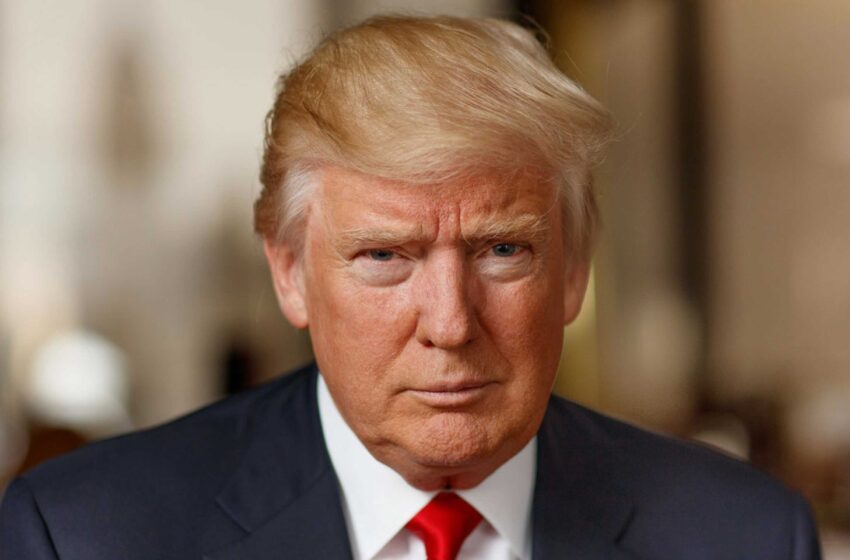Did Ontario’s anti-tariff ad just end U.S.-Canada trade talks? Trump fires back after Reagan speech sparks outrage

Donald Trump. Picture: David Hume Kennerly/Getty Images
Relations between Canada and the United States have hit a new low after President Donald Trump announced the immediate termination of trade negotiations with Ottawa. The decision followed the release of an anti-tariff ad by Ontario’s provincial government that used a clip of Ronald Reagan’s 1987 speech condemning trade barriers.
The controversy marks the latest flashpoint in a series of escalating economic disputes between the two allies, threatening the stability of North America’s already strained trade alliance.
Trump Cancels Canada Trade Talks Over “Fraudulent” Ad
On Thursday, President Trump declared that all trade talks with Canada were “terminated”, accusing the Ontario government of “fraudulently” using a Reagan speech to attack his tariff policies.
“Canada has fraudulently used an advertisement, which is FAKE, featuring Ronald Reagan speaking negatively about tariffs,” Trump wrote on Truth Social. “Based on their egregious behavior, ALL TRADE NEGOTIATIONS WITH CANADA ARE HEREBY TERMINATED.”
The one-minute ad, launched by Ontario Premier Doug Ford, used Reagan’s own words to argue that tariffs hurt American consumers and workers. “High tariffs inevitably lead to retaliation by foreign countries and the triggering of fierce trade wars,” Reagan’s voice says in the clip.
Ford’s government said the campaign aims to “remind Americans that trade barriers hurt both sides.”
READ ALSO
Ronald Reagan Foundation Fires Back
Shortly after the ad aired, the Ronald Reagan Presidential Foundation issued a statement criticizing Ontario for “misrepresenting” Reagan’s remarks and using the audio clip without authorization.
However, reports later confirmed that the 1987 address is public domain and listed online as “unrestricted for access and use.”
Despite the technical legality, the Foundation’s rebuke fueled Trump’s outrage, triggering a diplomatic meltdown between the two countries.
Canada’s Response: ‘We’ll Keep Pushing for Fair Trade’
Prime Minister Mark Carney’s office has not yet issued an official response, though insiders say the government remains committed to easing tariff tensions.
Trade Minister Dominic LeBlanc and senior officials were in Washington earlier this week negotiating partial tariff relief on steel, aluminum, and energy exports, a process now halted by Trump’s announcement.
Ontario Premier Doug Ford defended the ad, saying Canada “will never stop making the case against American tariffs.” The province reportedly spent C$75 million on the campaign, which is airing on major U.S. networks including Fox, NBC, and Bloomberg.
A Fractured Relationship Between Two Allies
The termination of trade talks threatens to worsen Canada’s economic challenges. Under Trump’s renewed protectionist policies, the U.S. has imposed sectoral tariffs exceeding 100% on key Canadian exports, steel, lumber, autos, and energy, driving Canada’s unemployment rate to a nine-year high.
Trade experts warn the decision could destabilize the North American supply chain. “This is the last thing either country needs,” said Jack Buffington, Director of Supply Chain at the University of Denver. “We should be rebuilding cooperation, not burning bridges.”
Carney’s Pivot Away from U.S. Dependence
Prime Minister Carney has pledged to diversify Canada’s trade portfolio, announcing plans to double non-U.S. exports over the next decade. His government is pursuing stronger ties with the EU, UK, and Pacific nations, aiming to make Canada less dependent on the U.S. market.
Still, analysts say the current rift could derail progress under the United States-Mexico-Canada Agreement (USMCA), which is due for formal review next year.
As Ford’s ad campaign continues to air across American networks, political observers warn that the spat could deepen ahead of the 2026 U.S. election cycle, making Canada a talking point in Trump’s protectionist agenda.
FAQ About Canada’s Trade Fallout with the U.S.
Why did Donald Trump end trade talks with Canada?
President Trump terminated trade negotiations after Ontario released an anti-tariff ad using Ronald Reagan’s 1987 speech. He accused Canada of misusing Reagan’s words and “interfering” with U.S. policies.
What did the Ontario anti-tariff ad say?
The ad quoted Reagan warning that tariffs “hurt every American” and “trigger fierce trade wars.” Ontario Premier Doug Ford said the ad was meant to highlight how protectionist policies harm both countries.
Did Ontario have permission to use Ronald Reagan’s speech?
The Reagan Foundation said no permission was granted, but the 1987 address is public domain and legally usable. Ontario maintains it followed proper copyright rules.
How did Trump respond to the ad?
Trump called the ad “fraudulent” and immediately ended all Canada-U.S. trade discussions. He defended tariffs as vital to U.S. jobs and national security.
What is the economic impact of Trump’s decision?
Canada faces steep tariffs on exports like steel, aluminum, and autos. Analysts warn this could worsen unemployment and strain North America’s supply chains.
What has Canada’s government said?
Prime Minister Mark Carney’s administration remains focused on reducing reliance on the U.S. by expanding trade with other countries, especially in Europe and Asia.
Who is Doug Ford and why is he involved?
Doug Ford is the Premier of Ontario. His provincial government funded the controversial C$75 million ad campaign challenging U.S. tariffs.
Will the USMCA trade agreement be affected?
Yes. The breakdown in talks may complicate the upcoming USMCA review and delay any progress toward resolving tariff disputes between the U.S., Canada, and Mexico.
Is this the first time Trump and Canada have clashed over trade?
No. Trump has repeatedly imposed tariffs on Canadian goods since his return to office, leading to several disputes that have strained the once-strong alliance.
How is Canada planning to recover?
The Carney government plans to diversify exports and strengthen global trade ties beyond the U.S., reducing economic vulnerability to American policy shifts.

